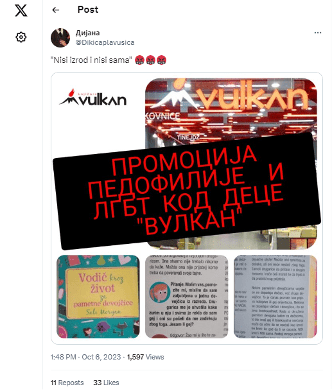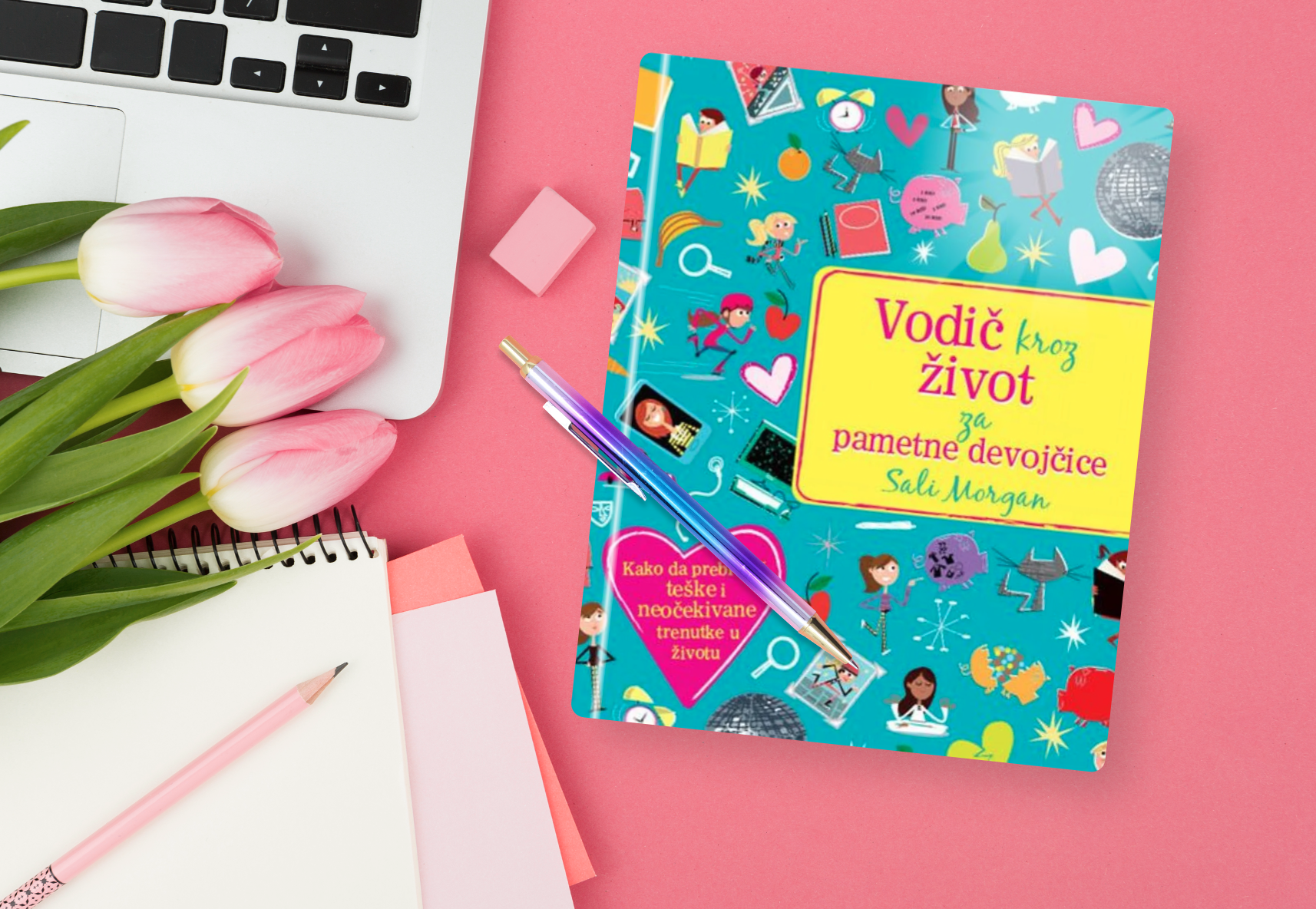Original article (in Serbian) was published on 2/11/2023; Author: Danijela Vujinović
In the beginning of October, a social media post on platform “X” stirred controversy by claiming that the publishing house Vulkan released a translation of a guide for teenage girls that supposedly advocates for “paedophilia and LGBT” content. The controversial material in question is from the book “The Smart Girl’s Guide to Life,” (Serbian edition, 2016), authored by Sally Morgan.

First and foremost, it’s important to note that the mentioned guide is specifically created for teenage girls. Its primary purpose is to provide solutions and advice for a range of situations that girls commonly face during adolescence. This includes addressing aspects such as education, health, relationships with family and friends, navigating romantic relationships, and offering guidance on maintaining privacy and security in the online realm.
The Fake News Tracker editors undertook a comprehensive review, reading the book in its entirety, and concluded that there is no reference to or promotion of paedophilia in any manner, whether implicit or explicit. It’s worth highlighting that the post on social network X lacks any examples to support the claim of paedophilia promotion.
Although the publication includes instances where the manual addresses the LGBT population, it is essential to emphasize that the content serves an educational purpose rather than functioning as a promotion.
The book features a recurring segment titled “Agony Aunt” in each chapter, where the author addresses what she believes could be common questions among teenage girls. In the chapter discussing the intricacies of falling in love, the author offers a range of advice concerning relationships with boys. Additionally, the concept of lesbianism, gay orientation, and bisexuality is explored. The author reassures young readers that they shouldn’t feel guilty if they find themselves attracted to a girl. In a supportive tone, author emphasizes:
“Don’t worry: whoever you like, you’re not a freak and you’re not alone. Many smart girls feel like you and you will meet them. Everything that makes you feel different at school is really hard, but having gay or bisexual feelings is not something to be ashamed of, let alone apologize for. Hold on!”
“Agony Aunt” tells girls who feel excluded from society because of their emotions to seek help, and directs them to the SOS line and services they can turn to, if their loved ones do not show understanding.



